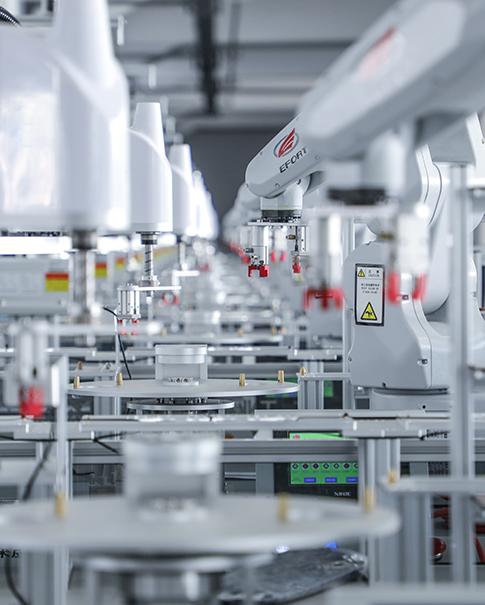As industrial automation continues to evolve, Distributed Control Systems (DCS) have become indispensable across various sectors such as power generation, chemical manufacturing, and oil refining. However, in the face of increasingly complex electrical environments, DCS signal interference has emerged as a critical concern. The reliability and safety of automation systems depend heavily on the system’s ability to resist signal disturbances, which—if ignored—can lead to operational instability or costly failures.

Common Types of Signal Interference in DCS Systems
Several types of interference may be introduced into DCS systems due to electromagnetic and electrical conditions in industrial environments. The major forms include:
• Resistive Coupling Interference: Caused by aged or damaged insulation on signal cables, particularly when multiple wires are bundled together.
• Capacitive and Inductive Coupling: Occurs when multiple signal lines are routed closely together, leading to unwanted electric or magnetic fields affecting nearby signals.
• Lightning Interference: Electromagnetic surges from lightning strikes can directly impact signal lines or indirectly through grounding systems.
• Power Line Disturbances: Sudden switching of high-power motors or equipment generates magnetic fields that can couple onto adjacent signal lines.
Each of these interferences can significantly disrupt signal accuracy and compromise system performance.
Understanding the underlying causes of interference is essential for prevention and mitigation. The most frequent causes include:
• Material and Equipment Degradation: Aging insulation or broken shielding on signal cables makes them susceptible to external noise.
• Poor Construction Practices: Improper cable routing, overcrowded cable trays, and mixing different signal types in the same conduit increase interference risk.
• Unreliable Grounding: Improper grounding, especially dual-end grounding of signal lines, can lead to ground loops that introduce significant noise into the system.
Without addressing these core issues, interference problems will persist even with modern hardware and software improvements.

To reduce and suppress signal interference, a combination of structural and technical strategies should be applied:
• Proper Cable Maintenance: Routinely inspect signal lines, replace those with degraded insulation, and avoid entangled layouts to minimize crosstalk and leakage.
• Layered Cable Routing: Separate signal types and use structured, layered layouts to reduce mutual interference.
• Signal Isolation: Implement electrical isolation through isolation amplifiers or signal separators to prevent ground loops and enhance system integrity.
• Twisted Pair and Shielded Cables: Use twisted-pair cables to cancel out magnetic field noise and add shielding (metal sheaths) to prevent capacitive interference.
These methods collectively enhance the robustness of signal transmission in noisy industrial environments.
Grounding plays a dual role in a DCS system: it protects the system from power faults and provides a stable reference voltage. Effective grounding involves:
• Single-Point Grounding: Prevents ground potential differences and loop currents that cause interference.
• Separation of Working and Protective Grounds: Ensures functional grounding doesn’t interfere with protective safety mechanisms.
• Low Grounding Resistance: Meets industry standards to safely dissipate current without affecting signal quality.
Well-executed grounding is fundamental to shielding the entire control system from unwanted electromagnetic disturbances.

In modern industrial automation, ensuring uninterrupted signal integrity within DCS systems is crucial for both safety and operational efficiency. Signal interference—stemming from environmental factors, poor construction, or aging infrastructure—poses a significant risk that must be proactively managed. By understanding the types and causes of interference and implementing strategic suppression methods such as isolation, shielding, and proper grounding, engineers can maintain high reliability and performance in even the most electrically noisy environments.
Email us
Reply within one working dayVisit us
32D Guomao Building, No.388, Hubin South Road, Siming DistrictDisclaimer : Featuredplc sells new and surplus products and develops channels for purchasing such products. This website has not been approved or recognized by any of the listed manufacturers or trademarks. Featuredplc is not an authorized distributor, dealer, or representative of the products displayed on this website. All product names, trademarks, brands, and logos used on this website are the property of their respective owners. The description, explanation, or sale of products with these names, trademarks, brands, and logos is for identification purposes only and is not intended to indicate any association with or authorization from any rights holder.
Copyright @2024 SalesPlc Limited. Sitemap
/ Blog
/ XML
/ Terms And Conditions
/ Privacy Policy
 Network Supported
Network Supported
